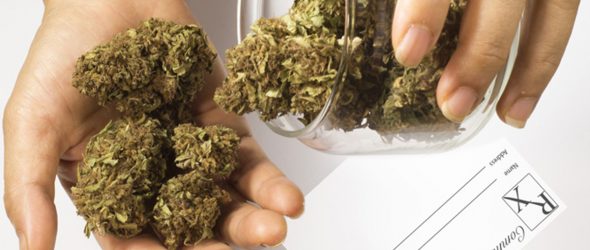August 18, 2020
2 min read
People with depression were at increased risk for cannabis use, according to results of a repeated cross-sectional study published in JAMA Network Open.
Researchers noted particularly strong increases in daily or near-daily cannabis use among this population.

Source: Adobe Stock
“Existing evidence indicates that cannabis may worsen depressive symptoms, particularly if used regularly,” Lauren R. Gorfinkel, MPH, of the department of epidemiology at Columbia University Mailman School of Public Health, and colleagues wrote. “However, much of the public views cannabis as helpful for treating depression. In a national survey of U.S. adults, nearly 50% reported their belief that cannabis is beneficial for anxiety or depression, while only 15% believed cannabis increases the risk [for] these conditions. Depression is among the most commonly self-reported reasons for cannabis use, and nearly 25% of adults with mood or anxiety disorders report using cannabis to self-medicate.”
According to the investigators, popular media often presents cannabis as positive for mental health, which may be linked to the public’s view of cannabis as helpful for treating depression. In the current study, Gorfinkel and colleagues aimed to evaluate the association between depression and past-month cannabis use among U.S. adults, as well as the association’s time trends between 2005 and 2016. They collected data of 16,216 adults aged 20 years to 59 years who responded to the annual, cross-sectional National Health and Nutrition Examination survey. Exposures included survey year, as well as depression according to a score of 10 or higher on the Patient Health Questionnaire-9. Daily or near-daily past-month cannabis use and any past-month cannabis use served as the main outcomes and measures, and the researchers used logistic regression to examine time trends.
Results showed those with depression were at 1.9 (95% CI, 1.62-2.24) times the risk for daily or near-daily cannabis use vs. those without depression. Further, the association between depression and cannabis use increased significantly during this period. The odds ratio for depression and any past-month cannabis use was 1.46 (95% CI, 1.07-1.99) between 2005 and 2006 and 2.3 (95% CI, 1.82-2.91) between 2015 and 2016. Moreover, the odds ratio for depression and daily or near-daily past-month cannabis use was 1.37 (95% CI, 0.81-2.32) between 2005 and 2006 and 3.16 (95% CI, 2.23-4.48) between 2015 and 2016.
“While further research to understand the mechanisms underlying the increasingly strong association of depression and frequent cannabis use is needed, the study findings highlight a current need for information campaigns around cannabis and depressive disorders,” Gorfinkel and colleagues wrote. “In addition, clinicians should be aware of the changing trends and the association between cannabis use and depressive symptoms when treating patients. This is particularly important in reference to frequent cannabis use, which is associated with greater risk [for] harm and potential worsening of depressive symptoms.”


